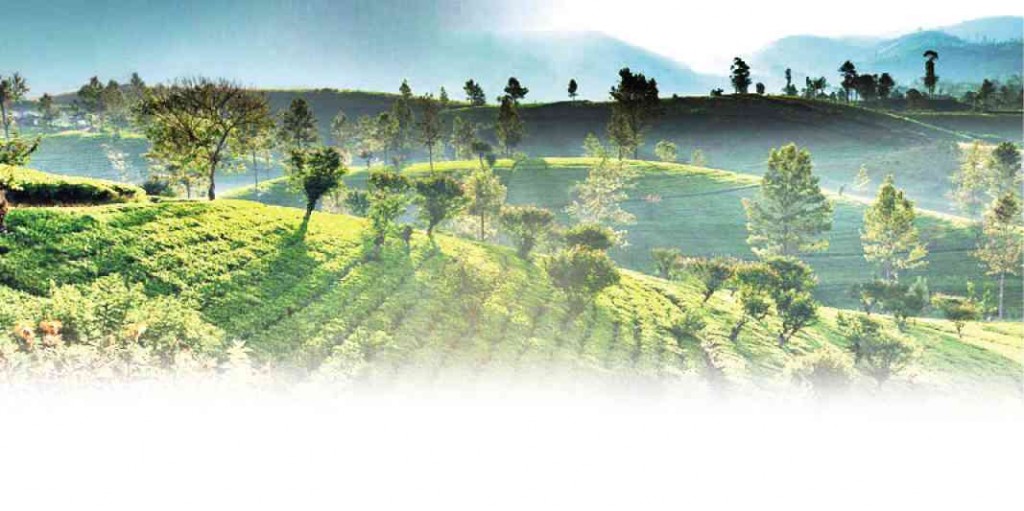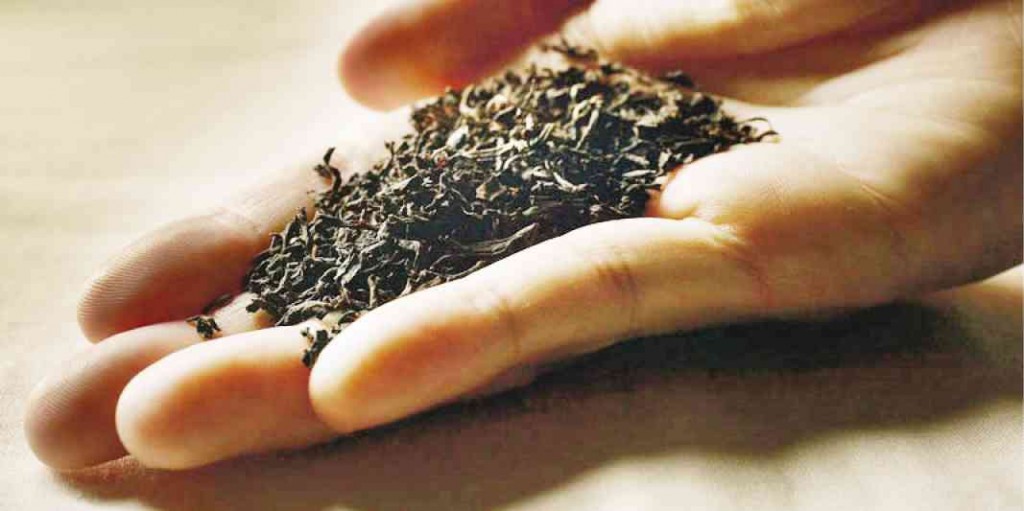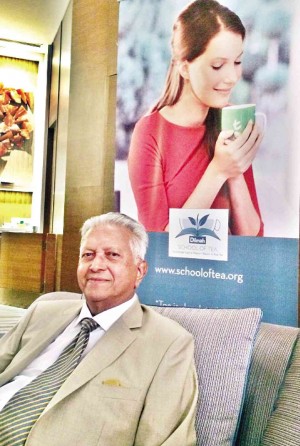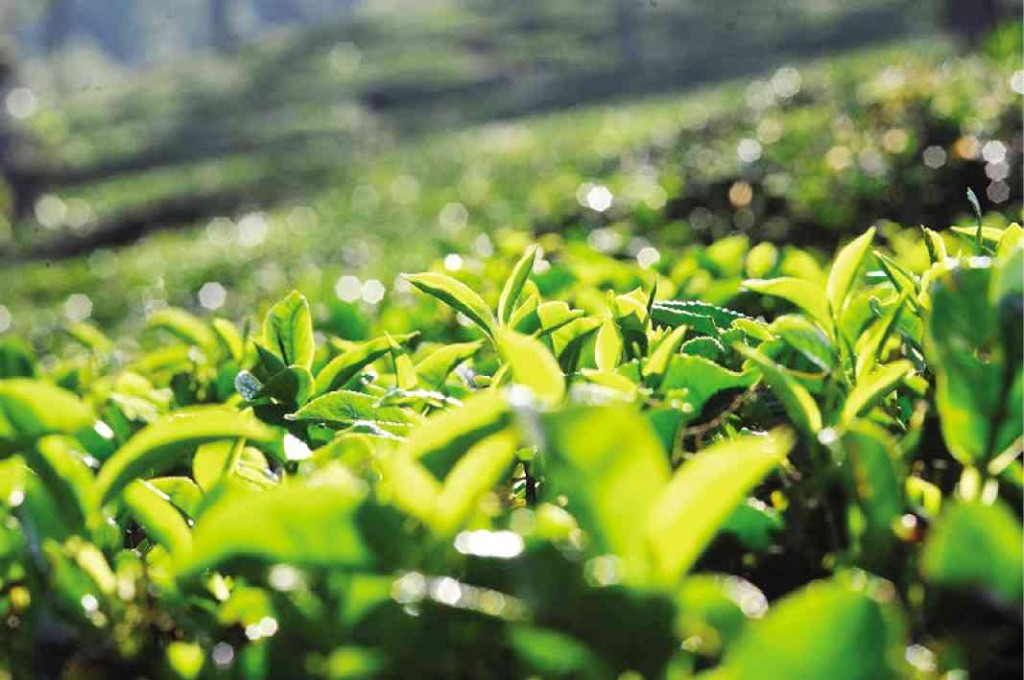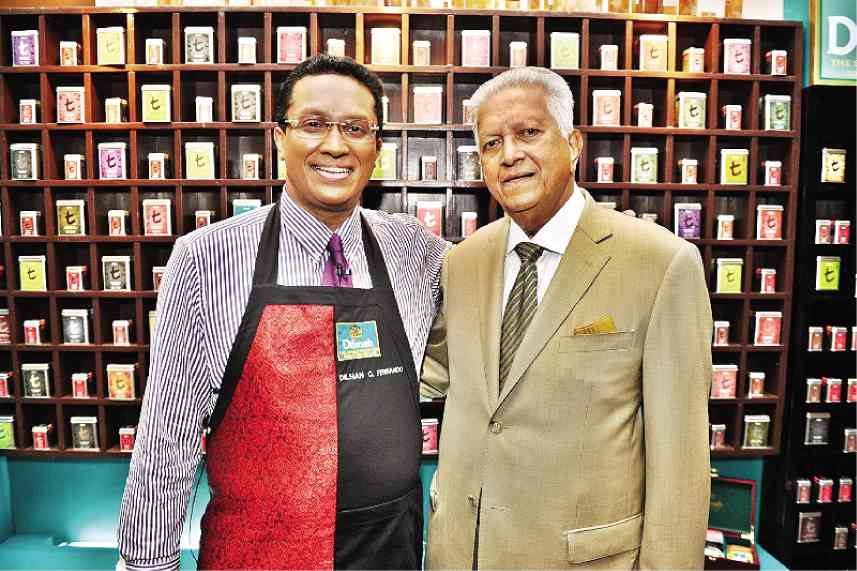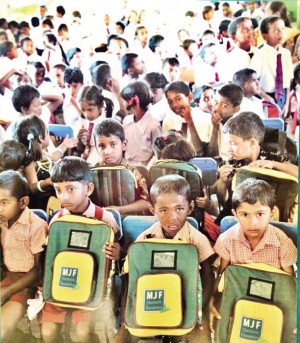Bringing integrity and ethics back to tea
MANILA, Philippines–If there is one thing that Sri Lanka business mogul Merill J. Fernando hates the most, it is seeing injustice and oppression happening right before his very eyes.
In fact, his entry into big business was spurred by his desire to help tea farmers and producers in his home country get their due and not be taken advantage of by traders.
Recently in Manila to introduce to the Philippine market the global tea brand Dilmah as well as launch the Dilmah School of Tea, Fernando became one of Sri Lanka’s richest because of his desire to bring the profits back to Sri Lanka and restore Ceylon tea to its former glory as the best tea on earth.
Now 84 years old, Fernando had his initial training in tea tasting in London where he realized that tea, handpicked and produced in the traditional way in Ceylon, benefited the middleman in Europe more than Ceylon and its farmers. He started as an exporter of bulk teas to several family-owned tea companies. However, he grew more concerned as big tea traders started buying up the family-owned businesses, and tea quickly became a commodity.
“I could not stomach how traders at that time bought tea as a raw material at 50 cents a kilo then sold them for $20. The traders became today’s multinational companies, ignoring quality in the name of profit, without concern for the producers,” said Fernando.
Fernando was further revolted when traders started using cheap quality tea that were passed it off as Ceylon tea. “For many years, consumers were unaware that the beverage they were drinking did not contain a shred of Ceylon tea. And our farmers in Sri Lanka were growing hungry because nobody was buying the real Ceylon tea.”
This made him think of coming up with his own brand to create value for Ceylon tea and to farmers. In 1988, with 18 workers and a small plantation, Fernando established the brand “Dilmah,” a combination of the names of his sons Dilhan and Malik, and proceeded to grow, process, and market their own tea.
“It was unheard of in those days because we come from a long history of colonialism and were used to exporting tea as a raw material. I had unknowingly struck the core of the tea industry. Many thought I would fail, but I invested what little savings I had in the business, believing that money came from processing tea and not merely producing it. We marketed our own crop and profit came back, tenfold,” Fernando notes.
World’s first ethical tea
His tea love paid off. Producing 11 million kilograms of the highest quality Ceylon tea, grown, processed and packaged in Sri Lanka, Dilmah takes pride in its 100 percent single-origin tea, and not a mixture of tea from different sources based on the lowest price on the market.
Dilmah is also the world’s first genuinely Ethical Tea. To this day, Dilmah still cultivates tea the traditional way, hand-picked and naturally dried, and the cycle, from farming to packaging, is completed on Sri Lankan soil.
The company remains Sri Lanka’s No. 1 manufacturer and exporter of tea bags, accounting for over 21 percent of the country’s total export of tea in bags. Dilmah is also the world’s first producer-owned tea brand and is currently found over a hundred countries and is the market leader in tea in New Zealand with 28 percent market share, and second in Australia.
Dilmah derives much of its business from the hospitality industry, being the brand of choice for luxe hotel chains such as Shangri-La, Hilton, Radisson, and many more. Dilmah Tea is offered on board almost 20 international airlines, and its tBars, offering tea with style and substance in a cocktail bar of teas, offer tea to younger, have opened in Holland, Poland, Italy, Thailand, and recently in Radisson Blu Hotel in Cebu City.
The soul of the tea
Despite Dilmah’s extensive holdings and Fernando’s expansion into other businesses, the founder has not strayed from the company’s roots, as a humble, family-owned tea plantation.
“My way of thinking is that if I treat my company as a small business, I will always be mindful of preserving the quality of the product and improving my business,” Fernando notes. “The moment industries become fixated on profit is when the quality drops.”
Fernando has always looked after the welfare of his workforce. Even with 18 employees then, Fernando had already been providing his employees’ children with school books and special allowances for those who did well in school.
“When I started making profits, I started giving shares. My mother taught me a great lesson in my life. When she got some chocolates or cookies, she would cut it into small pieces and give it to the neighbors. She would sit at our veranda and pray the rosary all the time. She’d say ‘son I’m praying for you every day.’”
In 2000, Fernando formally incorporated his charity, the Merrill J. Fernando (MJF) Foundation, which extends its aid not just to Dilmah employees (20,000 in the farms, and 1400 in the plants) but also to entrepreneurs, war victims, prisoners, the disabled, women, and children.
“After the tsunami struck Sri Lanka, we started a program called Small Entrepreneurs Program (SEP). So many people lost their families and everyone was under great distress. Our idea is to make them protect their dignity and not just give them food to eat. We picked 55 men and women, several people who ran small businesses, gave them all the tools necessary to start their businesses. And some people asked for small plot of lands, we gave that to them too. Today they have become entrepreneurs and each one is employing about six people. But the most important thing was that they were able to protect their dignity. We field representative who visit them from time to time and help them,” shares Fernando, a gentle look of satisfaction in his face.
The MJF Center was also established on 10 acres of land in Colombo where about 200 children with autism, Down syndrome and other disabilities are schooled and trained to keep their parents working.
“I was told by professionals that it is not uncommon in our country that children with special needs get tied up to trees when their parents go to work or to the market. I could believe those stories. In our country these kinds of children are discarded. It’s such a shame. When they started to put the children in our center, they showed remarkable improvement. All they needed was attention,” Fernando narrates.
The Foundation is also putting up a three-story with facilities to train disabled children. “Especially since we had a 30-year-old Civil War, there were land mines and thousands have lost their limbs. So we are putting up this culinary school where we will train disabled children and adults, land mine victims for possible employment in ShangriLa and Hilton hotels,” Fernando adds.
Fernando draws immense satisfaction from the fruits of the Foundation. “Last year in September, two children of tea plantation workers passed as medical doctors in Sri Lanka. It’s the first time in the history of the tea industry. We have several lawyers, engineers outside the plantation. Successful children are a big help,” he adds.
The MJF Foundation, Fernando proudly states, is the soul of Dilmah Tea.
“It is funded by the business, with each of our 28 companies donating 10 percent of its profits before tax. We accept no outside donations, as we believe in doing our part to help the needy and the marginalized.”
The foundation has changed the lives of over 10,000 individuals, through education, housing, welfare and empowerment programs. Its schools also offer education, scholarships and care to over 6,500 children in Sri Lanka.
Truly, Fernando believes that business is not just about making money. “When you share your success, you earn the community’s goodwill in helping you enlarge your business. At the end of the day, business is really a matter of human service,” he says.

